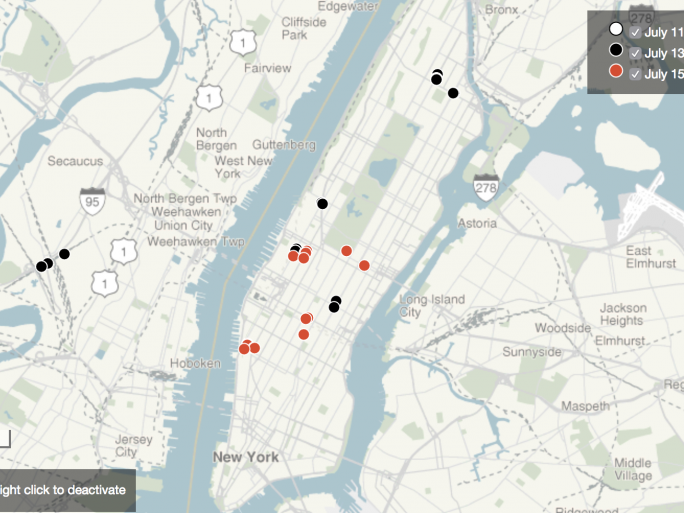Google Maps Sued After Father Drives Off Collapsed Bridge

Google sued by family after father was allegedly directed by Google Maps off collapsed US bridge and to his death
Alphabet’s Google has been struck by a lawsuit, after a father died after he drove off a collapsed bridge in the United States whilst following Google Maps.
Sky News reported the negligence lawsuit has been filed by the family of deceased Philip Paxson, who have alleged that Google had been informed the bridge had been collapsed for five years but had failed to update its navigation system.
According to Sky News, Paxson aged 47, a medical device salesman and father of two, drowned in September last year after his Jeep Gladiator plunged into Snow Creek in Hickory, North Carolina.
![]()
Tragic death
According to the Sky News report, in September 2022 Paxson had been driving home on a dark and rainy night from his daughter’s ninth birthday party through an unfamiliar neighbourhood when Google Maps allegedly directed him to cross the collapsed bridge.
“Our girls ask how and why their daddy died, and I’m at a loss for words they can understand because, as an adult, I still can’t understand how those responsible for the GPS directions and the bridge could have acted with so little regard for human life,” his wife, Alicia Paxson was quoted by Sky as saying.
Police who found Paxton’s body in his overturned and partially submerged truck said there were no barriers or warning signs along the washed-out roadway.
He had reportedly driven off an unguarded edge and crashed about 20 feet below, according to the lawsuit.
Sky reported the North Carolina State Patrol as saying that the bridge was not maintained by local or state officials, and the original developer’s company had dissolved.
The lawsuit names several private property management companies that it claims are responsible for the bridge and the adjoining land, Sky News reported.
Google notified
The lawsuit apparently states that multiple people had notified Google Maps about the collapse in the years leading up to Paxson’s death and had urged the company to update its route information.
The court filing reportedly includes email records from another Hickory resident who had used the map’s “suggest an edit” feature in September 2020 to alert the company that it was directing drivers over the collapsed bridge.
A November 2020 email confirmation from Google allegedly confirms the company received her report and was reviewing the suggested change, but the lawsuit claims Google took no further action.
“We have the deepest sympathies for the Paxson family,” Google spokesperson Jose Castaneda was quoted as telling the The Associated Press.
“Our goal is to provide accurate routing information in Maps and we are reviewing this lawsuit,” the spokesperson said.
GPS problems
Phillip Paxson is not the first person whose death has been linked to GPS.
The Guardian reported that in 2020, an 18-year-old Russian motorist froze to death after he and a friend were stranded in a vehicle for a week after following a Google Maps route through the country’s notorious “road of bones”.
The Guardian also noted a Straits Times report that in 2019, a truck driver in Jakarta, Indonesia, drove off a cliff after following a Google Maps route that was only meant for motorcycles.
In 2015, 51-year-old Zohra Hussain reportedly died in a car accident in Indiana, US, after her husband, who was following his Nissan Sentra’s built-in GPS, drove off an unmarked toll road that led to a demolished bridge.
Her husband, Iftikhar Hussain, reportedly sued the state of Indiana over the lack of barricades, according to the Chicago Tribune.
There have also been numerous cases of drivers blindly following GPS systems down unsuitable roads.
But the lack GPS connectivity can also cause problems.
In October 2011 for example, a major naval exercise off the coast of Scotland was ordered to stop using GPS jamming technology, after complaints it was endangering the lives of fishermen and was disrupting mobile phone networks.
As part of the operation, Global Positioning System (GPS) services were jammed in a radius of 20 miles around the various warships taking part in the Joint Warrior exercise.
The military’s GPS jamming also impacted mobile phones, Internet connectivity as well as satellite TV.
Also in 2011 a report by the Royal Academy of Engineering warned that people in the UK have become overly reliant on satellite navigation systems such as GPS, making the technology a prime target for criminals intent on disrupting the country’s infrastructure.